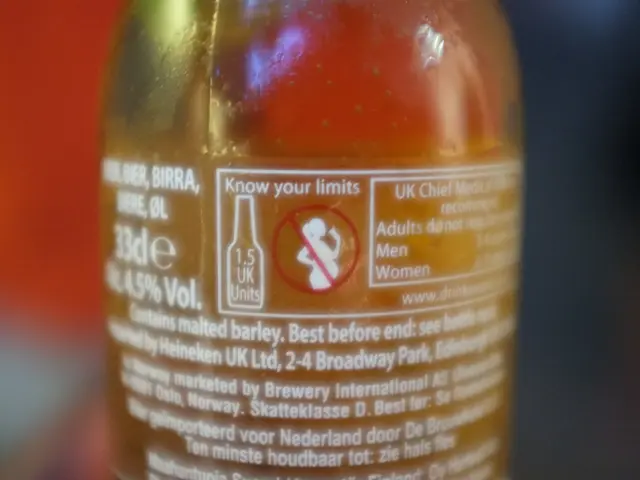Emergency services head Eric Thibaud in Colmar: 'Entire supply chain experiencing pressure'
Sweating Through the Summer
The beautiful city of Colmar, France, is currently experiencing a sweltering heatwave, and the local hospital is feeling the heat. Météo France has placed Alsace under a yellow heatwave alert for the third time in two weeks, bringing the mercury levels up to a sizzling 35°C or more. Eric Thibaud, head of the emergency department at the Colmar Hospital, shares his insights on the current situation.
What's the current state of affairs in the emergency department?
Never before have I seen such a busy month in this service, which I've been a part of for 15 years. About 152 patients visit the emergency department daily—a record high since the beginning of 2025. Last year we saw around 140 patients per day, but June is yet to peak. The heatwave seems to be largely responsible for these unprecedented numbers, and people are already bracing themselves for a scorching summer ahead. Unlike winter escalations due to acute illnesses (flus, gastroenteritis) or slippery road accidents, heatwaves persist longer and place constant pressure on the team.
Which types of patients are most affected during heatwaves?
We mainly deal with patients older than 70, suffering from heart or respiratory failure, who struggle in the heat. This pattern is quite familiar: in the winter, these same patients decompensate due to infections, while in summer, it's all about the heat. However, it's not only the vulnerable who are at risk—healthy young individuals can also fall victim to malignant hyperthermia, in which their body temperature shoots up suddenly, often reaching 40°C. For instance, a soldier recently landed in our emergency department after a strenuous training session in unbearable heat. Anyone pushing themselves too hard during a heatwave could find themselves in trouble.
How severe can these complications be?
In some cases, the situation improves within 24 to 48 hours, but it's never a walk in the park: usually, hospitalization, hydration, and close monitoring are required. Heart and lung failure patients often require specialized services and intensive care to manage sudden declines in their health that can lead to coma. Malignant hyperthermia can lead to patients suffering from consciousness problems, convulsions, and even death.
How to stay safe during heatwaves?
I won't reinvent the wheel, but it's crucial to air out your home at night, keep the windows closed during the day, and keep hydrated. Eating fruits and vegetables rich in water can also help. When possible, seek shelter in air-conditioned locations, cinemas, by the water, in the forest, or at high altitudes to cool off. Avoid alcohol consumption as much as possible, and refrain from exhausting physical activities during the heat. The idea of running a marathon in 35°C heat isn't wise!
Preparing for the summer ahead?
Two general practitioners have joined us at the hospital. They were scheduled to arrive before the heatwave of this June, but given the current situation, their arrival is much more welcome. Whether it's heatwave season or not, their additional support will come in handy. However, we know it won't be easy; we're expecting a demanding summer, and our main concern is whether the entire hospital will hold up. During the summer months, hospital closures are inevitable as soon as some healthcare workers go on vacation. This year, we'll make do with what we have.
Is the hospital adequately equipped for heatwave emergencies?
Some of our services are well-equipped, but others are not. Upgrades are in progress, but it's going to be a few years before they're completed. Our emergency department is lucky to have air conditioning, but the hospital's older buildings, like many hospitals in France, are not well-insulated, with a central structure that houses surgery, cardiology, oncology, featuring rooms facing south. Fans are currently installed for now, but they're not ideal for extreme heat conditions. It's difficult for the teams, and it's uncomfortable for the patients. The heat makes it harder for patients to recover properly. This ultimately extends their hospital stays and puts pressure on the entire chain of admitting new patients.
Emergency Response Network
There is no specific heatwave emergency plan detailed for Colmar Hospital. However, general context shows the involvement of the Colmar Volunteer Fire Company, dedicated to providing professional emergency fire rescue, hazardous materials incident assistance, and preserving life and property[1]. The fire company is on the front lines during hot periods, ensuring the safety of the Colmar community[4]. They are likely part of the broader emergency preparedness network that can support hospitals like Colmar Hospital during heat-related emergencies.
- In the realm of health-and-wellness, it's essential to stay hydrated during heatwaves, especially when consuming fruits and vegetables rich in water.
- The emergency department at Colmar Hospital is dealing with unprecedented numbers of patients due to the heatwave, with a focus on older adults suffering from heart or respiratory failure and healthy young individuals experiencing malignant hyperthermia.
- Climate-change-induced heatwaves can lead to severe complications, such as heart and lung failure, consciousness problems, convulsions, and even death, requiring extensive hospitalization, hydration, and close monitoring.
- The Colmar Hospital's preparedness for heatwaves is partially addressing the issue, but older buildings lack proper insulation, making it difficult for both teams and patients to cope with extreme heat conditions, ultimately prolonging hospital stays and putting pressure on the hospital's resources.






